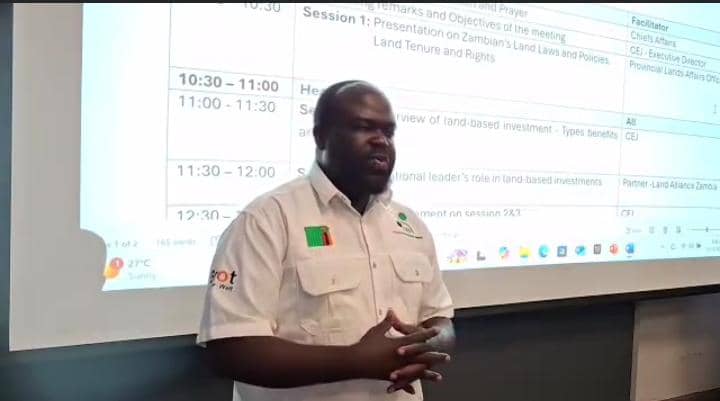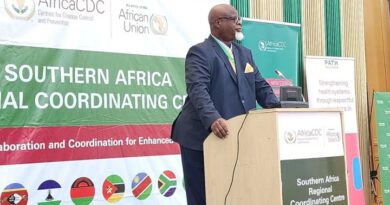EU-Funded Project Engages Copperbelt Chiefs in Dialogue on Land Rights and Environmental Governance
A European Union (EU)-funded initiative, Strengthening the Respect for Environmental Rights in Zambia (SR4ER), has brought together traditional leaders from the Copperbelt Province to discuss land rights and sustainable development.
Implemented by a consortium comprising HIVOS, the Centre for Environment Justice (CEJ), and the Zambia Institute of Environmental Management (ZIEM), the project aims to strengthen environmental governance and empower rights holders through training and awareness programmes.
Speaking during the dialogue, CEJ Monitoring and Evaluation Specialist, Haggai Nyambe, highlighted the importance of involving traditional leaders in national development, noting that about 95% of Zambia’s land falls under customary administration.
“Traditional leaders play a vital role in land management and environmental protection. Engaging them ensures sustainable development and responsible land governance,” Nyambe said.
He added that the SR4ER project, which runs until January 2027, may be extended to sustain its positive impact across communities.
Nyambe commended the active participation of chiefs, highlighting their willingness to collaborate on initiatives promoting environmental compliance and responsible land use.
Meanwhile, CEJ Environmental Protection Dialogue (EPD) Coordinator, Patricia Nangoyi, described land as one of Zambia’s most critical resources for economic development.
“Land-based investments in sectors such as agriculture, mining, forestry, and tourism have immense potential to create jobs, boost incomes, and enhance infrastructure,” she said.
However, Nangoyi cautioned that the growing interest in land use must be balanced with environmental protection and community rights. She cited concerns over insecure land tenure, community displacement, and environmental degradation linked to extractive activities.
She further urged stakeholders to uphold transparency, fairness, and inclusivity in land allocation to promote social cohesion and sustainable development.



